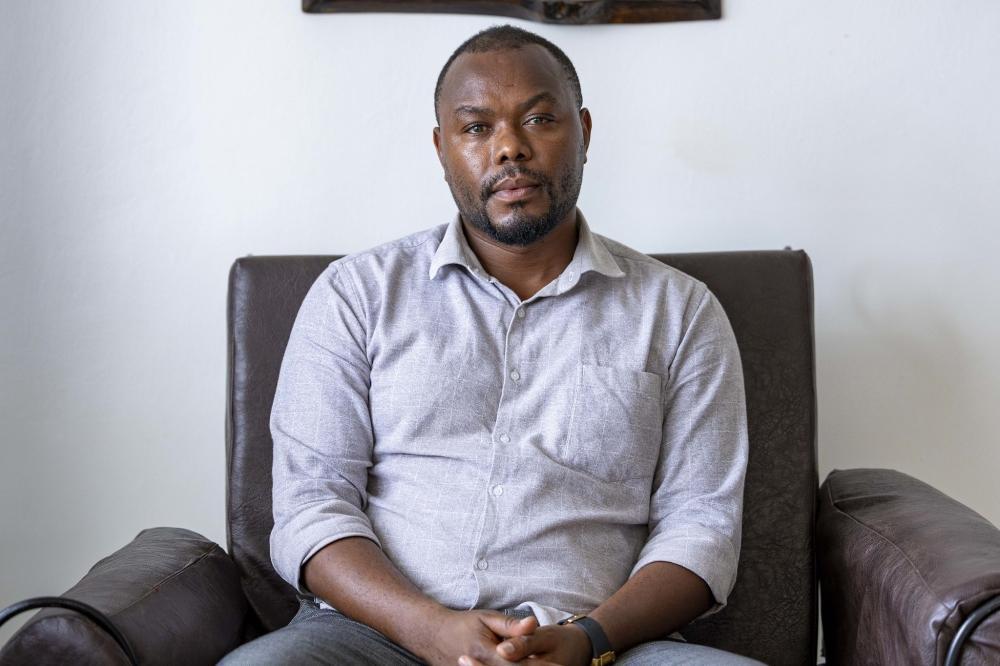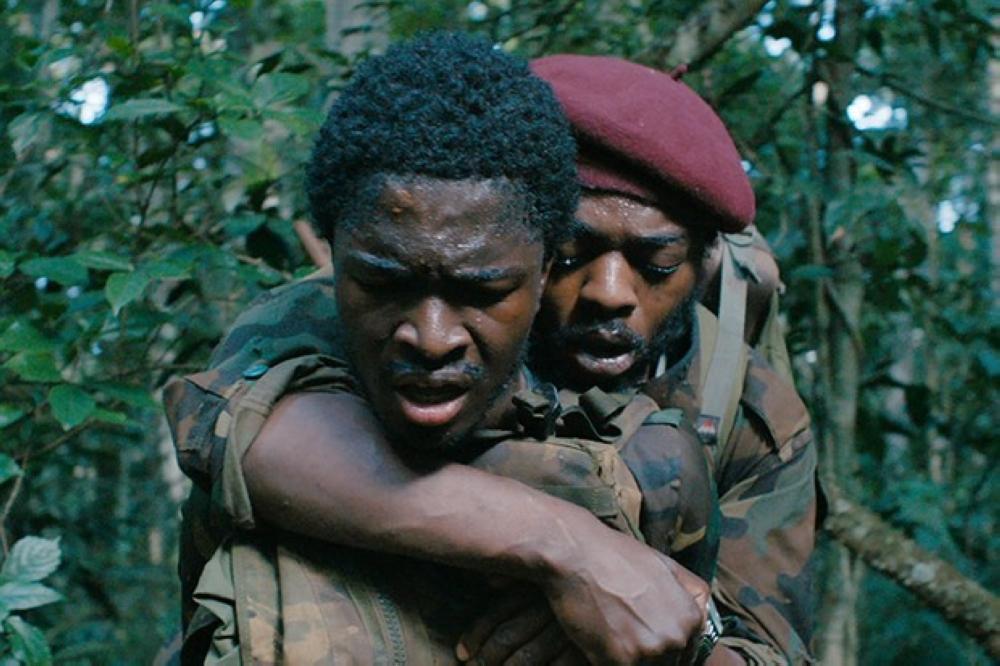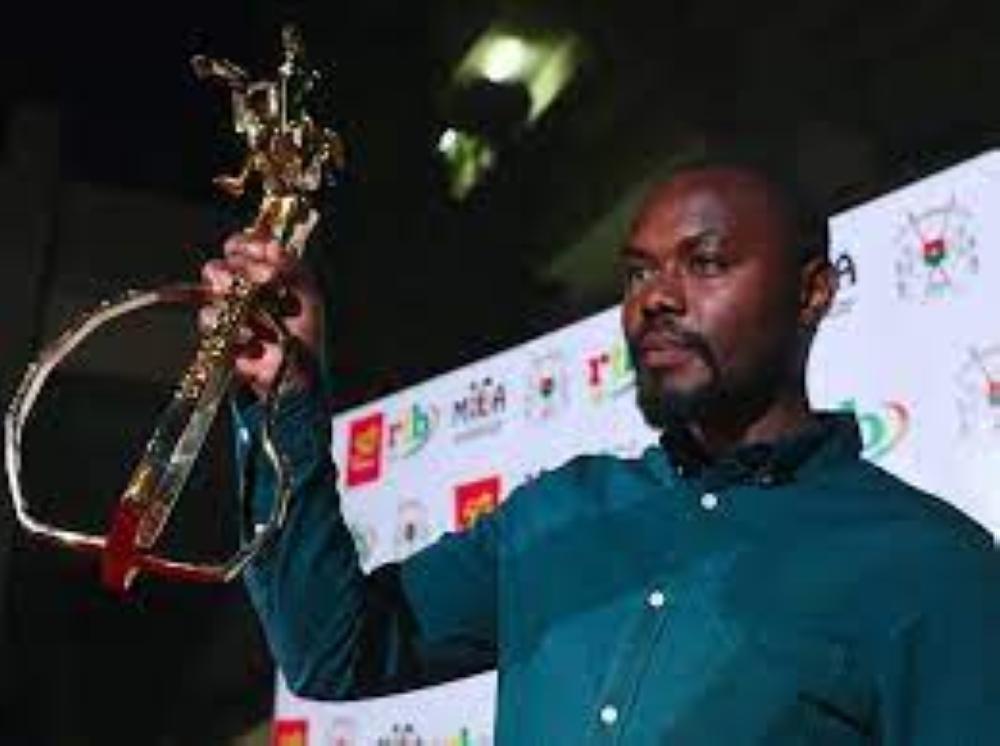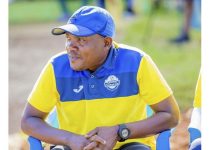Africa-Press – Rwanda. Over time, memories can fade or be altered if not properly preserved, especially for events from an era lacking recording technology or resources to capture them as they occurred.
It is even worse when the masterminds and perpetrators are doing the most to cover up, deny or negate their actions, to ensure that there is no record or memory of their heinous crimes left. This was a common scenario with the 1994 Genocide against the Tutsi.
In some cases, families and communities were completely wiped out, with no one left to tell the story, and in other cases, those who survived were left with horrendous wounds and trauma.
As Rwanda commemorates three decades after the 1994 Genocide against the Tutsi which claimed the lives of over one million innocent people, the lack of proper documentation of Genocide stories is one of the biggest challenges historians and record keepers have been grappling with, many even blaming the issue on the growing cases of genocide denial.
While the government has played its role by preserving the memory through various memorials and archives related to Genocide cases, only a few Genocide survivors have managed to share their stories, whether in a book or film.
It is something screenwriter, film producer, and director, Joël Karekezi, speaks about with worry because it is common knowledge that if something is not documented, it risks disappearing or being negated for one reason or another.
What is even more distressing for Karekezi is that there are hundreds of incredible stories of survival that have gone untold, either because the bearers of the stories do not have the resources to do so or nobody even interested them in doing so.
“The 1994 Genocide against the Tutsi was really a horrific situation that happened to us and the world and people should really know about it so that it doesn’t happen again.
“Movies and storytelling help us to really tell those stories so that they are not forgotten,” Karekezi said, emphasising the role of documenting Genocide stories through films or books.
A picture of some actors who played in a film directed by Joël Karekezi titled ‘ The Mercy of the Jungle’
One main reason is the assumption that others will act, leading to inaction. Over time, many will pass away, taking untold stories with them. For Karekezi, every storyteller must share their tale while they still can.
“It’s a responsibility for each Rwandan because every Rwandan has a story, but if we go deep on the Genocide especially, you realise that only one or two per cent of stories managed to be on screen or in books,” he said.
Very often, stories that go untold in permanent documentation die out or are forgotten. It is obvious that over the past 30 years, many who survived miraculously or saw their own being killed before their own eyes died without ever telling their stories.
“If you don’t tell what happened people will not know,” Karekezi said, reiterating why everyone has a responsibility, mainly because people tend to forget, focus on their lives, and move on easily to other things if they are not reminded of history.
“Our responsibility is to make sure that we keep telling stories,” he said, allaying fears related to the cost of documenting these stories, which sometimes becomes a challenge.
Karekezi, who has produced several short films on the 1994 Genocide against the Tutsi, said that films do not have to be very costly, as his first production was also on a small budget.
He joined hands with his friends, emphasising the power of collaboration when it comes to documenting such stories. He also said that an inexpensive budget does not compromise quality.
What is more important is how creative one can be with limited resources, to produce something of high quality, because a film of low or poor quality might not capture audiences.
Today, what he does is to train more people who can document or tell stories, by equipping them with skills, albeit with limited resources, while at the same time trying to raise funds for his own productions.
Karekezi said that some stories are not easy to be told in short films or with a small budget, given the magnitude of the work involved in bringing the story to the front.
An example he gives is the feature film he is currently working on as a co-writer with renowned producer Richard Hall, who is the main producer, along with Yvette Rugasaguhunga, who is the co-producer, focusing on the resistance in Bisesero.
The film director said such a project inevitably requires a lot of funds for it to be well done, and they are currently pushing to get the required funds to tell the story of how the people of Bisesero defended themselves against the killers.
Another film he mentions, which is in the pipeline, documents the life of Senegalese military officer, Captain Mbaye Diagne, who was serving under the United Nations Mission to Rwanda (UNAMIR), as an observer, and went on to defy orders to save the lives of people without a gun.
In doing so, he put his own life at risk but managed to save more than 600 people. Karekezi said such a heroic story should never go untold given how his actions profoundly touched the hearts of many.
“When I heard about this story I was really touched, so I decided to make it my next feature film. The script is ready. We are raising funds. We are almost at 50 per cent of the budget,” Karekezi said.
He believes the Senegalese hero’s story can inspire many if it is put in film and remind future generations of how people put their lives on the line to save others during the Genocide.
“The plan is really to tell those stories that have to be on the screen because like Captain Mbaye is an African hero who really put his life at risk for Rwandans.
“If we take an example in Rwanda, [Aminadabu] Birara himself is a hero who convinced his people to fight for their rights. These kinds of stories deserve to be on screen and it’s our responsibility to do it,” he said.
Rwandan actress Isabelle Kabano has been named among the cast of a new ground-breaking film on the 1994 Genocide against the Tutsi, particularly focussing on the massacres that happened in Bisesero, Western Province.
Birara will be at the centre of the aforementioned feature film dubbed “Bisesero: A Daughter’s Story”, which will recount the little-known true story of the Bisesero Resistance, in which tens of thousands of Tutsi he led bravely fought off Hutu attackers.
Film producer, and director, Joël Karekezi during the interview.
Karekezi, who is the co-writer of the movie, which has been dubbed as one that will bring out the true reality of the 1994 Genocide against the Tutsi, said such works ensure that the incredible stories of such heroes don’t get forgotten over time.
“It is our responsibility to do all we can, using our skills and means to ensure that all these stories don’t disappear. They deserve to be on the big screen,” Karekezi said.
It is something he speaks of out of experience because he and his siblings went through the same dilemma, finding themselves needing to document how their father was killed.
That is what birthed his first short feature film “The Pardon” in 2009, followed by a lengthy version dubbed, “Imbabazi: The Pardon” in 2013, both of which went on to win him various international awards and got screened at more than 50 film festivals across the globe.
It is a project he worked on while still studying at the then-Kigali Institute of Education (KIE), where his passion for filmmaking was ignited. As a young man, Karekezi often asked himself what would happen if he met the person who killed his father.
He became more curious to know how it happened and that is how he managed to retell the story—a tale of two young men, Manzi and Karemera, who grew up together and were friends but one was Hutu and the other Tutsi.
Because of the political situation, they went separate ways as Manzi joined Interahamwe militia, and went on to participate in the killing of the family of his friend Karemera.
After serving his 15-year sentence, Manzi was released from prison and went back to the same village to live side by side with his old friend Karemera whose family he helped exterminate.
The film explores how the two old friends reconcile their differences through forgiveness and find a way of coexisting without Karemera thinking of revenge. It emphasises the importance of forgiveness for a country to move on and develop without any hindrances or grudges.
“You have to really find a way not to forget, and how to move on in a way that really protects your soul, you develop your future and that of your children instead of focusing on revenge through violence,” he said.
Such stories that show the world how Rwandans overcame adversity to become one and lift each other up, put the past behind them, are some of the things that should not be forgotten.
Never too late
Karekezi said that whereas 30 years feels like a long time, it is never too late because even today, films about the Holocaust which happened nearly 80 years ago still bring out the real picture of what happened at the time.
Today, hundreds of thousands of Rwandans are still alive and they can still tell their stories from first-hand experience, something Karekezi said needs to be taken advantage of while they still live.
He also plays his part by training and equipping young people with skills to tell stories through filmmaking under his residency film school located in Rwamagana, Eastern Province.
Among other things, he teaches directing, writing, producing, acting, and other technical skills such as photography, sound engineering, and all aspects related to filmmaking, guiding to produce short films.
Karekezi believes that by equipping them with the skills early, they master the art of filmmaking and can even go on to conquer international stages and festivals just like him, having started as a young student with a dream.
One of Joël Karekezi’s films
Today he has been part of international production, including last year, where he was part of the production team that worked on the movie “Entre-Deux” directed by renowned Belgian director Jonas D’Adesky. Rwandan-French actress and former Miss France 2000, Sonia Rolland, is the main actress. Apart from that, Karekezi has also produced another film dubbed “Mercy of the Jungle”.
A learning journey
Through his filmmaking journey, Karekezi has been able to encounter the meaning of forgiveness and appreciates what the government has done to reconcile Rwandans over the past 30 years and lead them on a unified development path.
He has also made a documentary titled “The Portrait of Frequency” which focuses on Rwanda’s reconciliation journey, compiling stories of survivors and perpetrators talking about forgiveness.
“Through the discussion, I learnt a lot about forgiveness and how Rwandans really made this choice to forgive each and live together, which has contributed to the development of the country.
“It was not easy. It was a really tough decision, but I’m happy it happened,” he said, adding that with his own story, he harboured some grudges against the perpetrators, but the more he listened to stories of survivors, the more he understood the importance of forgiveness.
His story
Karekezi was born in Rubavu with five siblings—four boys and two girls. Before 1994, two of them passed away due to illness. During the 1994 Genocide against the Tutsi, one of his sisters, who was studying in Butare at the time, died while trying to escape for her life.
Living by the border, Karekezi and his brother managed to cross over to what was then Zaire, now the Democratic Republic of Congo (DRC) where they hid until the Rwandese Patriotic Front (RPF-Inkotanyi) liberated the country. By then they had lost their father.
Karekezi calls on many young Rwandans to take up the task of film production or book publication, interesting those who have stories to narrate, and then use the available resources such as the internet and social media to distribute them.
He says storytelling is a worthwhile vocation because most of this content is on demand and can create many jobs. It is a sector that can attract investors, and government institutions can play their role of facilitating the youth to be able to do it. He started the film school in 2020 to be able to equip young people with skills.
So far, they have managed to train about 60 young people with filmmaking skills and are looking to train 100 of them. These will contribute to documenting some of the stories that risk going untold.
Karekezi is grateful for what the government has done to ensure that Genocide survivors lead decent lives. It is a responsibility the youth have to take up.
For More News And Analysis About Rwanda Follow Africa-Press









